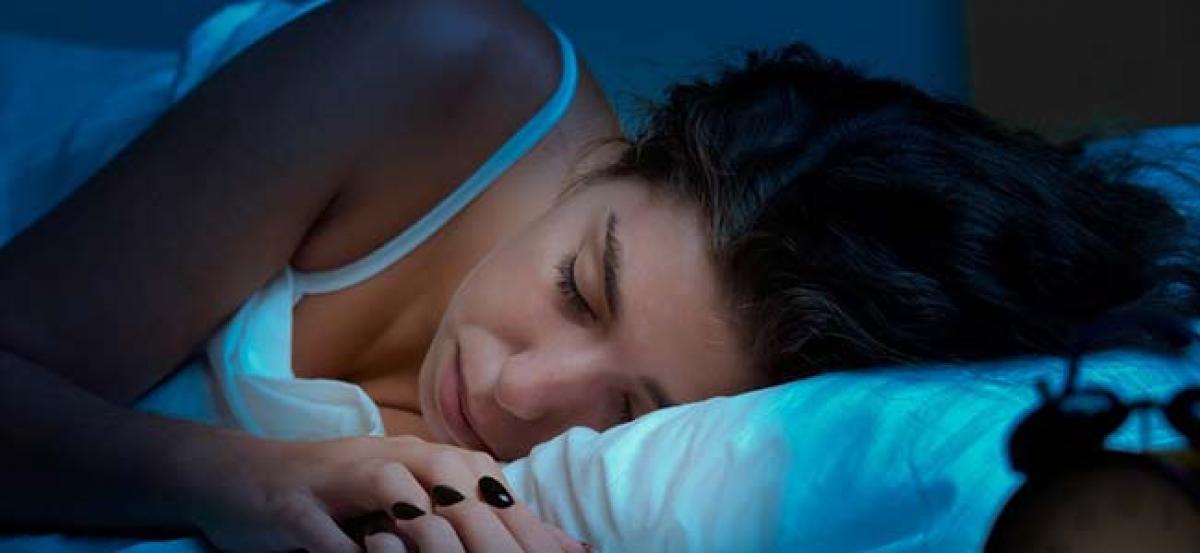Sleep has a bigger impact on college grades than drugs and alcohol: Study

College students who want good grades may want to skip the allnighters and avoid picking earlymorning classes because a new study suggests lack of sleep is at least as bad for academic success as binge drinking or doing drugs
College students who want good grades may want to skip the all-nighters and avoid picking early-morning classes because a new study suggests lack of sleep is at least as bad for academic success as binge drinking or doing drugs.
Each night of the week that college students have sleep problems was associated with a 0.02-point drop in their cumulative grade point average (GPA) and 10 percent higher odds that they would drop a course.
“Someone who is routinely well rested has a 0.14 GPA advantage over someone perpetually sleepy,” said study co-author J. Roxanne Prichard, scientific director of the Center for College Sleep at the University of St. Thomas in Saint Paul, Minnesota.
This could be the difference between getting Latin honors, or maintaining eligibility to play sports, or getting into medical school, Prichard said by email.
“When you’re approaching school work well rested, you can accomplish work and complex problem solving much more efficiently,” Prichard added. “Complicating this, is that when you’re sleep deprived, you’re more likely to experience feelings of anxiety, depression, as well as physical illness, all of which can impair your effectiveness as a student.”
The findings are drawn from 55,322 U.S. college students who were surveyed in 2009.
Overall, the students had an average GPA of 3.21 and reported an average of 2.4 nights a week when they experienced difficulties with sleep, struggled to fall asleep or stay asleep, woke up unrested, or felt exhausted during the day.
First-year students seemed most vulnerable to sleep-related bad grades, the study found. Among these freshmen, the impact of each additional day per week with sleep problems had the same impact on GPA as binge drinking and drug use. For upperclassmen, the effect was just as bad as being in an abusive relationship.
Only learning disabilities and diagnosed depression or anxiety appeared to have a larger impact on academic success than sleep.
First-year students were 14 percent more likely to drop a class with every day of the week they didn’t get enough sleep.
But sleep education didn’t seem to be a standard part of freshman year orientation programs, which often cover a range of health topics like stress, binge drinking, drug abuse, safe sex and intimate partner violence.
More than two-thirds of students surveyed said they had not received information from their universities about sleep difficulties. By contrast, 83 percent got information about drug and alcohol abuse.
The study wasn’t designed to prove whether or how sleep issues might directly impact academic success, the authors note in Sleep Health. Researchers also lacked data on students with anxiety or depression that hadn’t been formally diagnosed, which could independently impact both sleep and grades.
Still, the results suggest college students could use a refresher course on how to get to bed on time, said Dr. James Pagel of the University of Colorado Anschutz Medical Campus in Aurora.
“Sleep and sleep complaints are notably idiosyncratic as are learning styles, and occasional nights of poor sleep can be considered normal for any group,” Pagel, who wasn’t involved in the study, said by email. “But overall this study strongly suggests that individuals with sleep complaints in college may have more difficulty in sustaining higher levels of academic performance.”
Poor sleep might lead to lower grades because kids don’t wake up for class or don’t function well when they do show up, said Mari Hysing of the University of Bergen in Norway.
Ideally, college students should get seven to nine hours of sleep a night, Hysing, who wasn’t involved in the study, said by email.
“Too little sleep and poor quality sleep may impact attention and memory, which are both very important to perform academically,” Hysing said. “Sleep disturbances may also both be a consequence and contribute to depressed mood and increased worrying, and this again may impact the academic performance.”


















